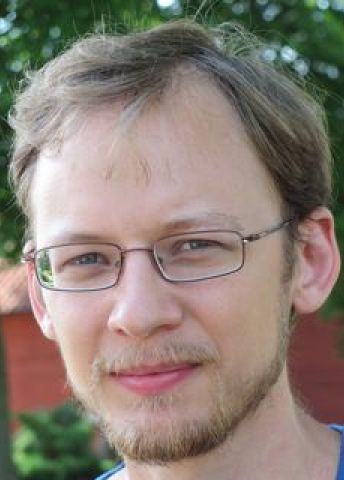
Program for mathematics 2017
Grant to recruit an international researcher
for a postdoctoral position
David Rydh
KTH Royal Institute of Technology
Grant to recruit an international researcher
for a postdoctoral position
David Rydh
KTH Royal Institute of Technology
A new perspective on complicated geometric objects
Associate Professor David Rydh will receive funding from the Knut and Alice Wallenberg Foundation to recruit an international researcher for a postdoctoral position at the Department of Mathematics, KTH Royal Institute of Technology, Stockholm.
The subject of the proposed research project lies in a very important and active branch of algebraic geometry called moduli theory. The theory has drawn significant interest over the last two decades, not the least because of its connections to physics, and in particular, to string theory.
Algebraic geometry has its roots in the work of seventeenth century French mathematician, René Descartes. His introduction of coordinate systems led to algebraic equations for geometric objects being linked with the geometry of these objects. Further developments of algebraic geometry have enabled the expansion of the concept of geometry to areas that at first sight do not seem geometric at all. For example, a set of prime numbers can be interpreted as a curve.
Within algebraic geometry, moduli theory studies the classification of curves and their higher dimensional counterparts. Each point of a moduli space corresponds to a classified object. These classified objects often have different symmetries, which can lead to the moduli spaces having a richer geometric structure – they become stacks. The theory of stacks has only recently assumed an important role in algebraic geometry and is currently an active area of research.
A significant portion of David Rydh’s research involves moduli spaces and stacks. By combining the theory of stacks with methods from other branches of mathematics, he has developed tools for solving previously unsolvable moduli problems. The purpose of the current project is to recruit a young researcher from abroad, bringing new perspectives to this work on moduli theory and its related areas.
Photo: KTH Royal Institute of Technology